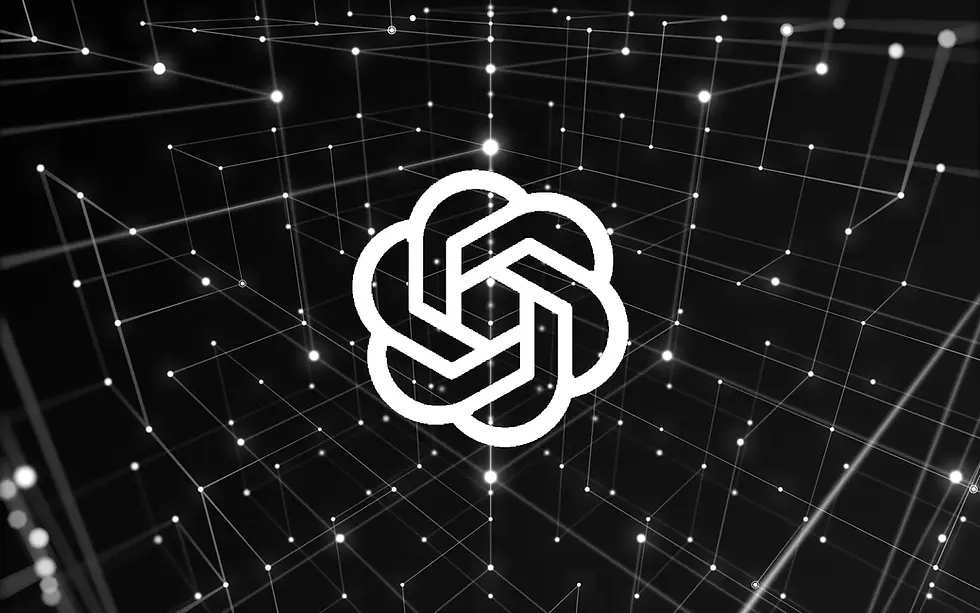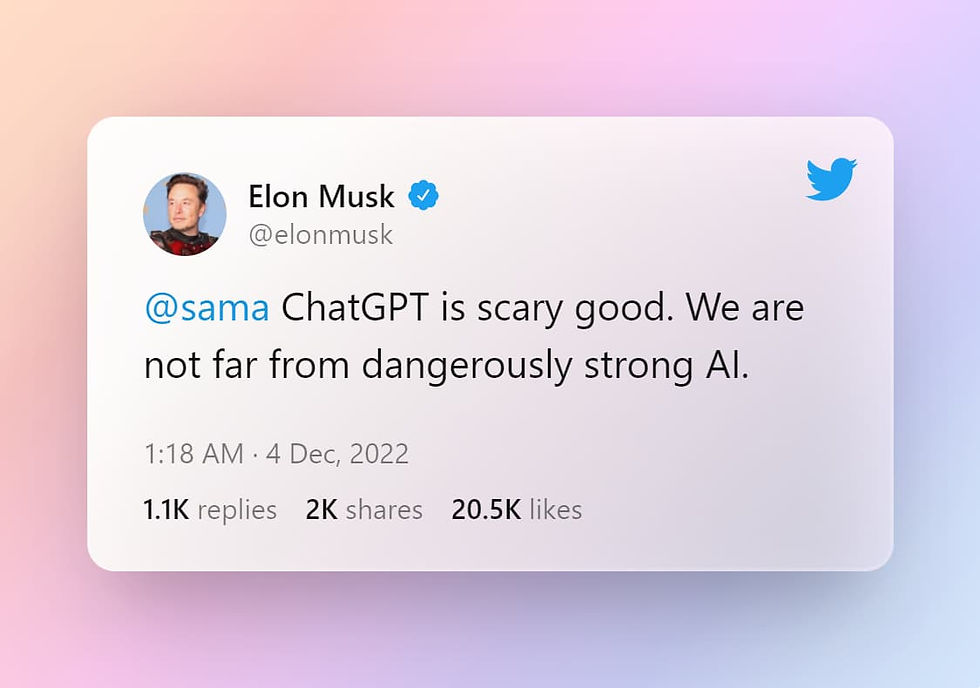In a world where technology is advancing rapidly, where AI has become increasingly prevalent in our daily lives, when do we draw the line?
This doesn't need an introduction, everybody already knows what ChatGPT is –– and that fact is pretty scary.
Sam Altman, OpenAI's chief, said on Twitter that ChatGPT had more than 1 million users in the first five days after it launched. You can probably imagine how many it has now.
Elon Musk and other AI experts have been calling for a six-month pause in AI development, and perhaps it's for the better. These machines have become insanely strong with the newest edition of ChatGPT (GPT-4) scoring in the 90th percentile of the bar exam and passing nearly every single AP test it took, scoring 4's and 5's on notoriously difficult ones such as AP Biology, AP Chemistry, AP US History, and AP Physics 2. There's no doubt, students would definitely use this "brain" of GPT to their advantage on their school assignments.
But should they (including me) really? Should they really use GPT on that English essay? On that history essay? For obvious reasons, the answer is no. However, I think my reasoning is a little bit different. It's not about academic dishonesty, ethical concerns, trust issues, none of that.
For me, I think the most detrimental thing that GPT does is destroy the passion of students.

The thing that GPT offers is convenience, plain and simple. My grandparents would always tell me about how they didn't have Google back then and that they would have to search things up by going to the library and taking out books. They told me how convenient Google was and how I should be grateful for the technology I have today.
Well, GPT is Google on drugs. It holds the knowledge of everything on the internet plus more. It can rewrite paragraphs to make them sound like some distinguished author. It can hold conversations, understand human emotions, etc.
That sounds incredible, and it is. It's absolutely astonishing that AI development has gone this far and it is indeed a technological breakthrough. Unfortunately, this breakthrough comes at a pricey cost. With millions of students nationwide using this platform, getting answers and cheating has never been easier.

Now, I don't think I'm a wise person, I'm only 15. I (hopefully) haven't lived the majority of my life, and I haven't had enough experiences to be able to sit down with children and give them life lessons. However, what I do know is this: the true essence of passion lies in the mastery of difficult pursuits, rather than the mere accomplishment of simple ones. Importantly, the difficult pursuits are... well... obviously challenging, and that's the point.
There should be some kind of graph that shows excitement levels after completing easy and difficult tasks. If there was, I'm sure completing easy tasks would produce the lowest amount of excitement and harder tasks would produce the most. That excitement is what produces the engineers of tomorrow, the doctors of tomorrow, the historians of tomorrow.
Moreover, students are often told, “You are defined not by your failures but by how you choose to respond”. However, if they are never the ones to respond (they use ChatGPT instead of their own brains), how will they ever learn that they aren’t failures?
Am I indirectly saying that those who use ChatGPT to do assignments are failures? Yeah, kind of. You're failing your teachers, the people who simply want to guide you. You're failing your parents, the people who just want the best for you. You're failing yourself. You will fail to discover what you like and what you don't like. You will fail to discover who you want to be if you never even give yourself the chance to try.
In other words, you can't learn to walk without falling, and you most certainly can't learn to walk if a frickin' AI is doing it for you!
You know, now that I'm thinking deeper, I'm starting to wonder if having a passion for a certain subject would even matter anymore if AI can so easily take over jobs. I mean, how many people aspire to be lawyers? So many. Millions, probably. Well, little do you know, the next lawyer you hire might be a fellow named GPT-4.
I think this might change everything about having a "passion". In our capitalist society, perhaps the future will become more about strategy, and less about feelings/emotions. Perhaps, in the future, when an aspiring lawyer is picking between law school and art school, he/she will choose the latter, because at least robots can't dance (I was wrong)...

Comments